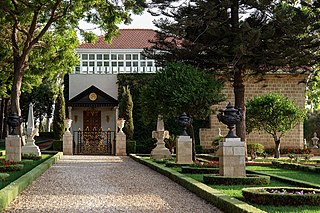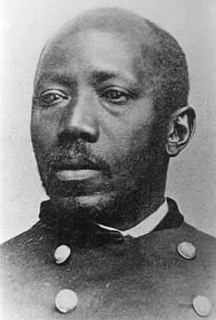A Quote by Francis Bacon
Knowledge hath in it somewhat of the serpent, and therefore where it entereth into a man it makes him swell.
Related Quotes
Breathes there the man, with soul so dead, Who never to himself hath said, This is my own, my native land! Whose heart hath ne'er within him burn'd, As home his footsteps he hath turn'd From wandering on a foreign strand! If such there breathe, go mark him well; For him no Minstrel raptures swell; High though his titles, proud his name, Boundless his wealth as wish can claim; Despite those titles, power, and pelf, The wretch, concentred all in self, Living, shall forfeit fair renown, And, doubly dying, shall go down To the vile dust, from whence he sprung, Unwept, unhonor'd, and unsung.
Blessed the man that hath visited `Akká, and blessed he that hath visited the visitor of `Akká. Blessed the one that hath drunk from the Spring of the Cow and washed in its waters, for the black-eyed damsels quaff the camphor in Paradise, which hath come from the Spring of the Cow, and from the Spring of Salvan (Siloam), and the Well of Zamzam. Well is it with him that hath drunk from these springs, and washed in their waters, for God hath forbidden the fire of hell to touch him and his body on the Day of Resurrection.
Wine makes a man better pleased with himself. I do not say that it makes him more pleasing to others. Sometimes it does. But the danger is, that while a man grows better pleased with himself, he may be growing less pleasing to others. Wine gives a man nothing. It neither gives him knowledge nor wit; it only animates a man, and enables him to bring out what a dread of the company has presented.
Therefore 'Christ hath tasted death for every man:' not only for all kinds of men, as some vainly talk, but for every one, of all kinds; the benefit of whose offering is not only extended to such, who have the distinct outward knowledge of his death and sufferings, as the same is declared in the scriptures, but even unto those who are necessarily excluded from the benefit of this knowledge by some inevitable accident.
Who is the happy Warrior? Who is he
That every man in arms should wish to be?
It is the generous spirit, who, when brought
Among the tasks of real life, hath wrought
Upon the plan that pleased his boyish thought:
Whose high endeavors are an inward light
That makes the path before him always bright:
Who, with a natural instinct to discern
What knowledge can perform, is diligent to learn;
And in himself posses his own desire
If, therefore, man has come into the world to search for God and, if he has found Him, to adhere to Him and to find repose in adhering to Him-man cannot search for Him and attain Him in this sensible and corporeal world, since God is spirit rather than body, and cannot be attained in intellectual abstraction, since one is able to conceive nothing similar to God, as he asserts-how can one, therefore, search for Him in order to find Him?








































